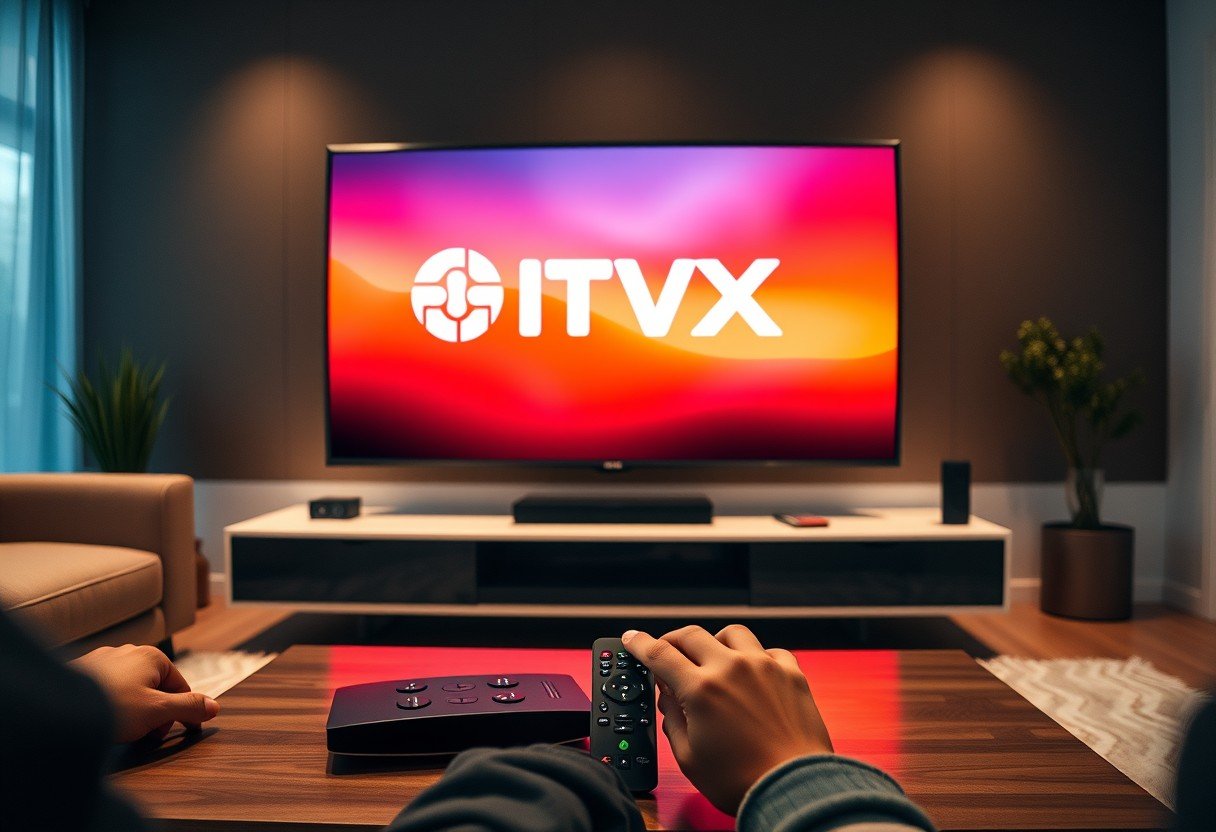It’s necessary to understand the complex reasons behind why some consumers support price controls while others oppose them. As you navigate the landscape of economics, you’ll discover that perspectives on price controls are often shaped by individual circumstances, beliefs, and experiences. This blog post will explore into the motivations that drive your stance on this contentious issue, exploring the factors that lead some to view price controls as a necessary tool for consumer protection and others as detrimental to market efficiency and competition.
Key Takeaways:
- Consumer Perception: Some consumers favor price controls because they perceive them as a means to protect against price gouging and ensure affordability, especially for important goods.
- Market Impact: Opponents often believe that price controls can disrupt market equilibrium, leading to shortages and reduced availability of goods and services.
- Economic Education: Levels of economic understanding significantly influence opinions; those with more knowledge may oppose price controls due to an awareness of their potential negative consequences.
- Social Equity: Advocates argue that price controls can promote social equity by making basic needs accessible to low-income consumers, while critics see it as government overreach.
- Historical Context: Past experiences with price controls during crises can shape attitudes; positive associations can lead to favoring controls, while negative outcomes can prompt opposition.
Understanding Price Controls
Before delving into consumer opinions on price controls, it’s crucial to understand what they are and how they function within an economy. Price controls are government-imposed limits on the prices that can be charged for goods and services, aiming to manage inflation and improve affordability for consumers. They can take the form of price ceilings, which prevent prices from exceeding a certain level, or price floors, which establish minimum prices to protect producers.
Definition and Purpose
The primary purpose of price controls is to stabilize the market by preventing excessive price fluctuations that could harm consumers or producers. By regulating prices, the government hopes to ensure crucial goods remain accessible, particularly during times of crisis or economic instability, aiming to balance supply and demand effectively.
Historical Context
To comprehend the significance of price controls, examining their historical applications can reveal patterns in consumer behavior and governmental reactions to market conditions. Price controls have often been implemented during wartime, economic depressions, or periods of hyperinflation as a means to safeguard public welfare.
Historical instances of price controls include the U.S. during World War II, when the government set price ceilings on various goods to prevent wartime inflation and ensure fair distribution of resources. Similarly, in the 1970s, the U.S. faced severe inflation, prompting price controls on key commodities like gasoline. These examples illustrate how price controls can arise in response to significant economic challenges, often reflecting a societal desire for stability and fairness. Understanding these historical contexts helps you appreciate why some consumers advocate for such measures while others argue against them.

Economic Implications of Price Controls
If you are considering the economic ramifications of price controls, it’s crucial to understand their long-term effects on supply and demand. Price controls can lead to shortages when the price is set below the equilibrium level, as suppliers may be disincentivized to produce goods. Conversely, if the price is set too high, excess supply may occur, leading to wasted resources. Ultimately, these controls can distort market mechanisms and create inefficiencies that affect both consumers and producers.
Benefits to Consumers
The implementation of price controls can provide immediate benefits to consumers by making important goods and services more affordable. When prices are capped, you may find that previously unaffordable items become accessible, especially during times of crisis or inflation. This can enhance your standard of living and allow you to allocate your budget more effectively towards other needs.
Drawbacks to the Market
Market distortions often arise when price controls are enforced, leading to unintended economic consequences. You might experience product shortages, as producers may cut back on supply to maintain profitability at capped prices. This can create a frustrating environment where demand outweighs supply, leaving you unable to access the goods you need. Additionally, the lack of price flexibility can stifle innovation, as companies may lack the incentive to improve products or services when profits are constrained.
To fully appreciate the drawbacks to the market associated with price controls, you should consider the broader economic landscape. For instance, when price ceilings are enforced, it often leads to a decrease in the quality of goods available, as producers may lower their standards to sustain profitability. Furthermore, black markets may emerge where goods are traded at higher rates, significantly undermining the purpose of price controls. This can result in a cycle of inefficiency that not only impacts you, the consumer, but also threatens the overall health of the economy.
Consumer Psychology and Price Controls
All consumers approach price controls through a unique psychological lens, influenced by personal experiences, values, and socioeconomic status. Understanding these factors can help explain why some individuals support price controls as a means of ensuring fairness and accessibility, while others resist, perceiving them as an infringement on market freedom and innovation. Your views on price controls may reflect deeper beliefs about economic justice and market efficiency, shaping not only your purchasing behavior but also your overall trust in economic systems.
Perception of Value
An individual’s perception of value plays a crucial role in their stance on price controls. When you believe that a product’s worth is tied to its market price, you may oppose price controls as they disrupt this natural valuation. Conversely, if you perceive vital goods, like food and medicine, as fundamental rights, you might favor price controls to ensure equitable access, reflecting a broader societal view on the importance of safeguarding consumers.
Behavioral Economics
Consumer psychology also intersects with behavioral economics, which examines how you and other individuals make economic decisions based on cognitive biases and heuristics.
To effectively understand this intersection, consider how psychological factors influence your decision-making. You may be swayed by anecdotal evidence or emotional appeals concerning price controls, such as stories of families struggling to afford basic goods. Additionally, biases like loss aversion can lead you to oppose price hikes resulting from uncontrolled markets while simultaneously supporting measures that aim to stabilize prices. By recognizing these human tendencies, you can better comprehend your own preferences and the diverse perspectives surrounding price controls.
Political Perspectives on Price Controls
Many individuals find themselves divided on the issue of price controls, largely influenced by their political beliefs. Those on the left often see price controls as an crucial tool for promoting social welfare, viewing them as a means to protect consumers from market failures. In contrast, those on the right typically argue that price controls can lead to market distortions, ultimately harming the economy and reducing the incentives for production. Understanding these differing perspectives can help you navigate the complex discussions around price controls and their implications for consumers and businesses alike.
Advocacy for Price Controls
To many advocates, price controls are a necessary intervention in markets that would otherwise leave vulnerable populations at risk. They argue that without such controls, crucial goods can become unaffordable, ultimately leading to greater inequality and social unrest. Advocates emphasize that government regulation can ensure fair access to necessities like housing and healthcare, creating a more equitable society for all.
Opposition to Price Controls
The opposition to price controls presents a compelling argument grounded in economic theory. Critics assert that imposing price limits can result in shortages and reduce quality, as producers may be less inclined to supply goods at lower prices. They believe that a free market allows for the most efficient allocation of resources, as prices naturally adjust based on supply and demand. This perspective prioritizes market mechanisms over government interventions, suggesting that you may find more sustainable solutions in fostering competition rather than regulating prices directly.
Perspectives on opposition to price controls are rooted in the belief that government interventions disrupt the natural functioning of markets. When prices are set artificially low, it can result in a reduced incentive for producers to create goods or services. Consequently, you may experience shortages, leading to rationing or the emergence of black markets. Additionally, this viewpoint suggests that price controls can diminish overall product quality, as producers may cut corners in effort to maintain profitability. By understanding these opposing arguments, you can better evaluate the broader implications of price controls on both consumers and the economy.
Socioeconomic Factors Influencing Opinions
Once again, the perspectives on price controls often stem from various socioeconomic factors that shape your viewpoints. These include:
- Income level
- Access to resources
- Educational background
- Awareness of economic policies
Knowing these factors can significantly influence whether you support or oppose price controls in market economies.
Income Level and Accessibility
Influencing your stance on price controls, income level plays a critical role in how you experience price fluctuations and access to necessary goods and services. Those with lower incomes may favor price controls for necessary products, believing they provide stability and affordability.
Education and Awareness
Factors such as education and awareness shape your understanding of economic principles and policies like price controls. Individuals with more educational resources typically have greater access to information about the effects of price controls and may form more nuanced opinions.
To further elaborate, understanding economic concepts and the broader implications of price controls can alter your attitude toward them. If you are educated about how price controls impact supply and demand, you may recognize potential drawbacks, such as shortages and market distortions. Conversely, those less informed might see immediate benefits, leading to polarized opinions based on varying levels of economic literacy.
Regional Variations in Attitudes
Not all consumers view price controls in the same light; regional variations play a crucial role in shaping your perspective. Areas with higher living costs or significant income disparities may lean toward supporting price controls as a means to ensure affordability, while regions with more stable economies might emphasize the importance of market freedom and oppose such measures. Understanding these nuances is imperative for grasping the broader conversation around price controls.
Urban vs. Rural Perspectives
Attitudes toward price controls often diverge significantly between urban and rural populations. In urban areas, where the cost of living can be high and competition fierce, you may find a greater inclination to support price controls to protect vulnerable consumers. In contrast, rural regions, where the economics of supply and demand can be more straightforward, might foster a belief that price controls disrupt natural market forces.
Cultural Influences
Perspectives on price controls are also shaped by cultural influences, which can dictate how you view economic policy. Local customs, histories of economic hardship, and prevailing political ideologies can all mold your attitude towards government intervention in pricing. Societies that prioritize collective welfare may lean toward supporting price controls as a protective measure, while those valuing personal responsibility and individualism might resist such interventions.
For instance, in certain cultures that emphasize community and support systems, there is a greater acceptance of price controls as a way to help the underprivileged. This belief often stems from historical experiences where government interventions successfully alleviated economic suffering. Conversely, in cultures that value entrepreneurial spirit and free-market principles, you may encounter a strong resistance to price controls, as they are seen as impediments to creativity and competition. Understanding these cultural backgrounds can significantly enhance your comprehension of the broader discourse surrounding price controls.
Conclusion
Ultimately, your stance on price controls often reflects your personal circumstances and values. If you find yourself struggling with the high cost of living, you may favor price controls as a means to ensure affordability and accessibility. Conversely, if you are a business owner or investor, you might oppose such measures due to concerns about market distortion and reduced incentives for innovation. Understanding these differing perspectives can help you better navigate the complexities of economic policy and its impact on society as a whole.
FAQ
Q: What are price controls and why are they implemented?
A: Price controls are government-mandated legal minimum or maximum prices set for specific goods and services. They are implemented to prevent inflation, protect consumers from price gouging, and ensure important goods remain affordable. Proponents believe they help stabilize the economy during crises, while opponents argue they can lead to shortages and reduced quality of products.
Q: Why do some consumers favor price controls?
A: Consumers who favor price controls often do so because they believe these measures will help maintain affordable prices for important goods and services. This is particularly important during economic downturns or times of crisis when costs can soar. Price controls are seen as a safety net for low-income households and individuals who might struggle to afford basic necessities.
Q: What are the main reasons some consumers oppose price controls?
A: Conversely, some consumers oppose price controls due to concerns that they disrupt market dynamics. Critics argue that price floors can lead to surpluses, as producers may make more of a good than consumers are willing to buy at the controlled price. Price ceilings, on the other hand, may lead to shortages, as producers may reduce the supply of goods when they cannot cover their costs. This can ultimately harm consumers by limiting access to products.
Q: How do economic theories influence opinions on price controls?
A: Opinions on price controls are often influenced by differing economic ideologies. Supporters of price controls may lean toward a Keynesian perspective, which emphasizes the role of government intervention in stabilizing the economy. Opponents, however, may adhere to a laissez-faire capitalist view, arguing that free markets are inherently self-regulating and that any form of government intervention can lead to inefficiencies and negative outcomes.
Q: How do personal experiences shape views on price controls?
A: Individuals’ personal experiences with the economy can significantly shape their views on price controls. Consumers who have faced hardship due to rising prices may support price controls for relief, while those who are producers or businesses may oppose them due to the negative impacts on profitability and supply. Additionally, socioeconomic status can play a role; those in affluent positions may not experience the same urgency for price controls as lower-income individuals.








Leave a Comment